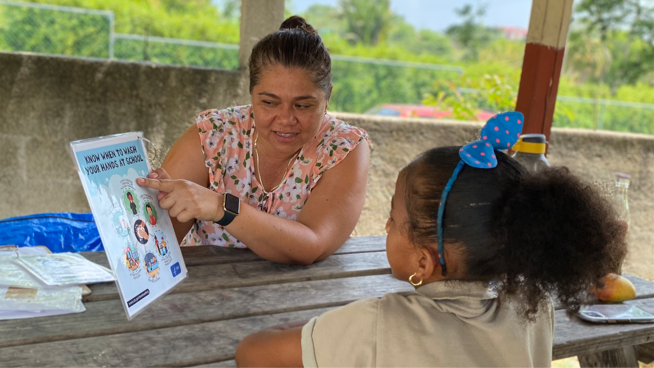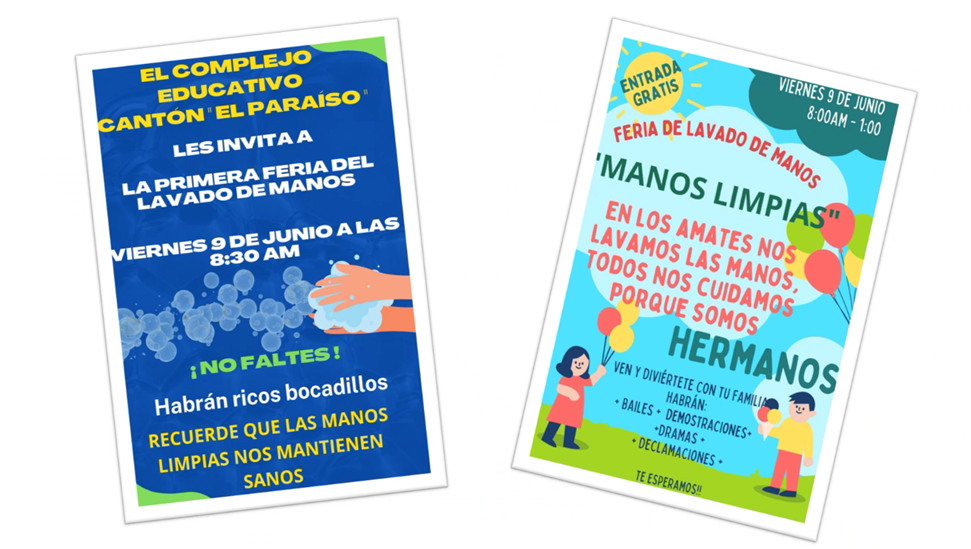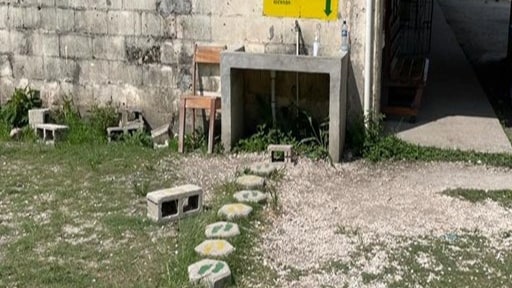Key points
CDC worked with partners to improve hand hygiene in primary schools in Belize, Guatemala, and El Salvador as part of efforts to reduce the spread of COVID-19 in Central America. Learning about and practicing hand hygiene in primary education settings is critical to preventing the spread of infectious diseases in schools.

Background
Learning about and practicing hand hygiene in primary education settings is critical to preventing the spread of infectious diseases in schools. Hand hygiene behavior, particularly handwashing with soap, is especially important at moments like after using the toilet and before eating.
Challenge

Teachers don’t always have the tools they need to teach their students about hand hygiene. Schools in low-resource settings often lack hygiene materials. This can make it difficult for educators to implement handwashing lessons and for students to regularly practice handwashing.
Intervention
CDC's Waterborne Disease Prevention Branch provided technical assistance to support water, sanitation, and hygiene (WASH) activities in Belize, El Salvador, and Guatemala. CDC collaborated with implementing partners from research institutions, CDC country offices, and ministries of health and education.
In 2022, field staff conducted baseline assessments to understand hand hygiene needs in 12 schools. These assessments found gaps in:
- Students' hand hygiene knowledge and practice.
- Inconsistent hand hygiene lessons in school curriculums.
- Shortages of supplies for hand hygiene practice.
To overcome these challenges, CDC and partners developed a series of hand hygiene promotion programs based on needs for each setting. Activities included:
- Providing schools with guidance for organizing hygiene festivals.
- Creating ideas for lesson plans.
- Setting up behavioral nudges like handwashing signs and painted footsteps leading to sinks.
- Donating hand hygiene supplies.
Handwashing festivals and health fairs
In Guatemala and El Salvador, partners worked with teachers and administrators to develop materials for handwashing festivals and health fairs. The materials were designed to allow creativity among teachers and students by creating games, songs, and parades to share hygiene messages within their schools and communities.

A gentle nudge to wash hands
In Belize, behavioral "nudges" were placed near handwashing stations to encourage students to practice handwashing at key times. These visual cues included:
- Footsteps leading students to handwashing stations.
- Colorful handwashing messages above sinks.
- Arrows pointing to soap dispensers.
- Handwashing reminders inside stalls and above urinals.
Soap was provided to participating schools during the intervention period to supplement existing supplies.

Results
Final data on the impact of the interventions are being collected. Partners have already observed improvements in students' hand hygiene knowledge.
Regular hand hygiene supplies and local strategies boost health in areas lacking access to such resources, as shown by these projects.
CDC continues to collaborate with domestic and global partners to improve access to WASH services and infrastructure around the world.
